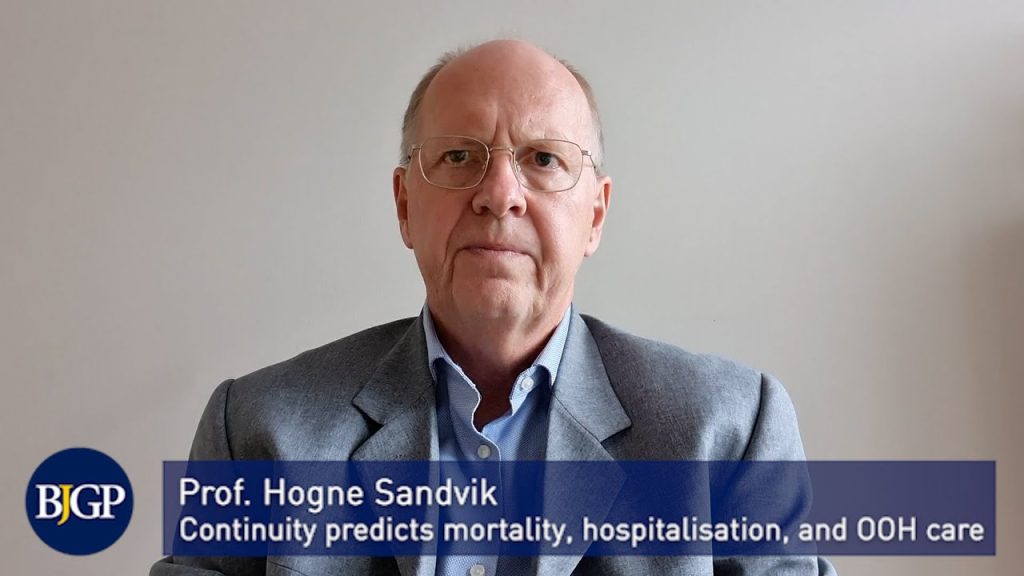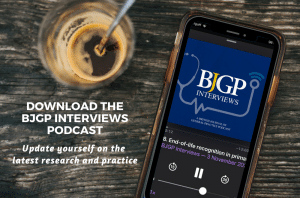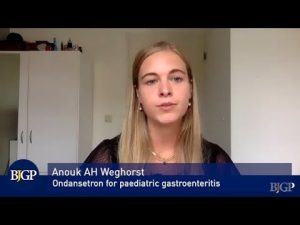In this episode, we look back at the 2025 BJGP Research Conference.
This study examined whether GP continuity of care matters and 4.5 million Norwegian patients and their named GPs were included. There is a strong association between continuity and patient outcomes including hospitalisations and mortality.
Professor Brendan Delaney talks us through some key recommendations around long Covid from a new Delphi study.
Dr Thomas Round talks about research that shows how 2-week wait referrals for cancer have more than doubled up to 2018/2019.
Professor Stewart Mercer talks about how the implementation of social prescribing via a link worker programme has worked in Deep End practices in Glasgow and offers his expert thoughts on the evidence base in this area, the inverse care law and addressing
This study gives insights into how GPs document safety-netting advice and how it compares to what actually happened in the consultation.
Anouk Weghorst takes us through the findings from a RCT studying the use of ondansetron in primary care in children with gastroenteritis.
We discuss a new randomised controlled trial exploring the use of ondansetron for vomiting in children with gastroenteritis.
LUTS are common and Professor Adrian Edwards talks through research on the experiences of GPs and patients.
Dr Sharon Dixon talks through research on diagnosing endometriosis in primary care.
We speak to Dr Faraz Mughal about young people who self-harm and how we can improve primary care services for them.
We speak to Dr Ian Bennett-Briton about a system of continuous risk-based peer review and how GPs found it.
We speak to Dr Julian Treadwell about how GPs talk to patients about numbers and how we feel about discussing risks and benefits.
We speak to Dr Marta Wanat about a study that explored the experiences of primary care across eight European countries during the first wave of COVID-19.
Erin Oldenhof and Dr Petra Staiger join us from Australia to offer practical, actionable advice from their paper to support prescribers in discontinuing benzodiazepines.
Dr Felicity Knights talks to us about new research on the impact of COVID-19 and migrant health and how we can make primary care more accessible.
Dr Fiona Cuthil talks to us about new research on GP outreach settings for people experiencing homelessness.
Dr Elizabeth Cecil joins us to talk about research exploring the factors associated with potentially missed acute deterioration in primary care.
Remco Tuijt from the UCL Research Department of Primary Care and Population Health talks us through a qualitative paper exploring the experiences of remote consultations for people living with dementia and their carers.
Dr Alison Berner talks about recent research into the attitudes of trans men and non-binary people to cervical screening.
Dr Jo Parsons tells us about the findings from a systematic review into which patients miss appointments and why.
Dr Jean-Pierre Laake and Prof Willie Hamilton join us to talk about a randomised controlled trial that targeted groups to encourage them to attend for possible cancer-related symptoms.
Dr Riitta Partanen joins us to tell us more about a study looking at GPs' insight into discontinuing long-term antidepressants.
Professor Sir Michael Marmot talks about Julian Tudor Hart and the role of GPs "natural allies" in his work to tackle social determinants of health.
Dr Claire Friedemann Smith talks about a qualitative study that explores how GPs use gut feelings to help them navigate grey areas in diagnosis.
Drs Laura Swaithes and Andrew Finney talk about group consultations and the experience of delivering them in general practice.
We talk to GP, Dr Emily Donovan, about new research into the experience of domestic abuse by female doctors.
Professor Jane Gunn discusses research into a self-administered tool for depression. This RCT showed that 'Target-D', a person-centred clinical prediction tool and e-health platform matching management options to prognosis, results in greater improvement in depressive symptoms at 3 months than usual care.
Professor Jane Gunn talks about a randomised controlled trial, Target-D, that aims to match the best treatment to people with depression.
Garth Funston talks about the role of chest X-ray in early lung cancer diagnosis and new research highlighting a potential source of delay of diagnosis.
Dr Garth Funston talks about new research investigating how quickly people with symptomatic lung cancer had a pre-diagnostic chest X-ray.
Daniela Strelchuk and Prof Stan Zammit talk about their paper that explores the experiences of GPs in identifying patients at risk of psychosis.
Prof Stan Zammit and Daniela Strelchuk talk about people at risk of developing psychosis.
Prof Trish Greenhalgh and Gilly Mroz discuss findings from their study looking at how the media have portrayed remote consulting in different phases of the pandemic.
Professor Trish Greenhalgh and Dr Gilly Mroz talk about a new paper that examines the media depiction of remote consulting during the pandemic.
Dr Tom Margham talks to us about quality improvement approaches to tackle DNAs - it's more about the system than the patient.
Dr Sarah Bailey takes us through important new evidence around the implications of thrombocytosis in our patients.
We talks about attitudes and understanding of COVID testing; point-of-care testing; recent research in this area; and the use of CRP and how it fits into clinical care.
Dr Bethany Bareham talks about managing older people’s perceptions of alcohol-related risk.
Dr Daniel Stow talks about research into end-of-life recognition in older people.
Dr Sian Russell talks about research into the use of NEWS in care homes.





